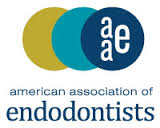Have you ever heard of Maxillofacial Prosthetics? It’s a subspecialty of Prosthodontics and involves the rehabilitation of patients suffering from disabilities or defects due to trauma or disease, or that were present at birth. In such cases, a prosthesis may be required for cosmetic and/or psychosocial reasons. For more serious cases, a prosthesis may be needed to restore natural oral functions–such as chewing, swallowing, and talking–as well as areas of missing tissue or bone. Not all dentists provide this specialty, so if you or someone you know needs a prosthesis, you’ve come to the right place.
Reasons for Maxillofacial Prosthetics
There are several reasons that a patient may require a Maxillofacial Prosthetic including those listed above. Other reasons include:
- Accidents
- Surgical removal of diseased tissues
- Neuromuscular disorders such as stroke or ALS
- Birth defects such as being born without teeth, a fully developed palate, or fully developed ears
- To shield facial structures during radiation therapy
Training
Maxillofacial Prosthodontists are required to complete three years of advanced training in complex oral rehabilitation. They are accustomed to working cooperatively with other highly trained professionals including oral surgeons, general and specialty dentists, plastic surgeons, ENTs, speech pathologists, neurologists, radiation oncologists, anaplastologists (those trained to design and create body parts), as well as various other ancillary personnel, in an effort to restore or improve the function of the area of the face or body that is compromised, and to improve the patient’s quality of life.
If you believe that you might benefit from Maxillofacial or related treatment, contact our Maxillofacial Prosthodontist, Dr. Mehdi Karimipour, at Modern Dentistry of Shrewsbury.










